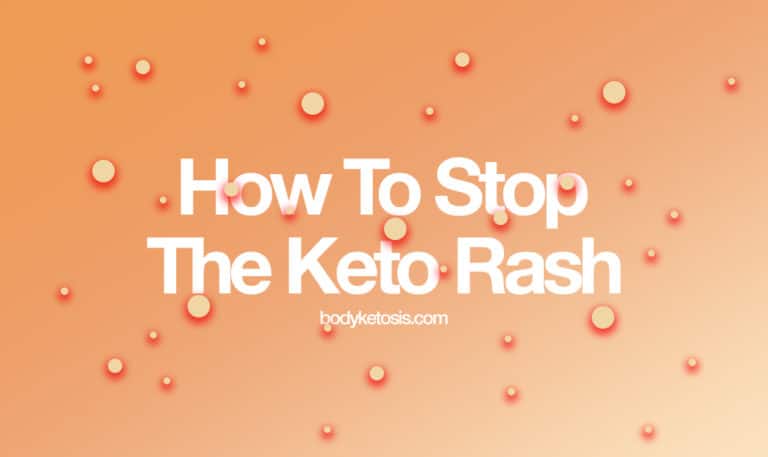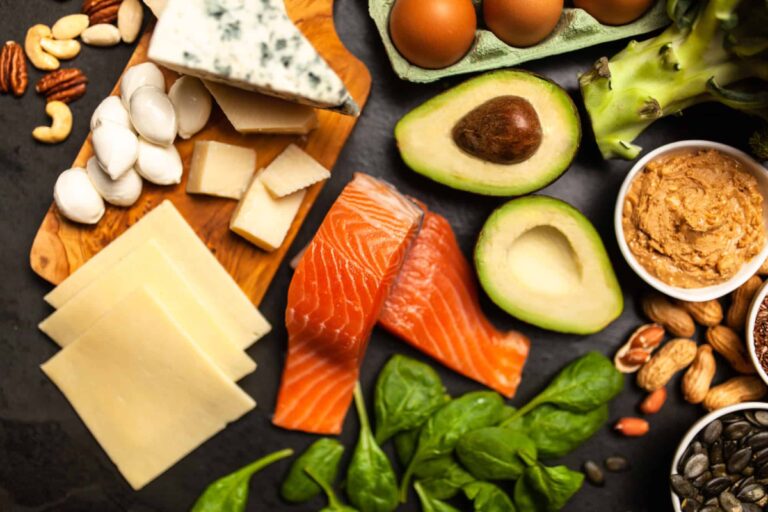How to STOP Keto Headache Fast [And Why it Happens]
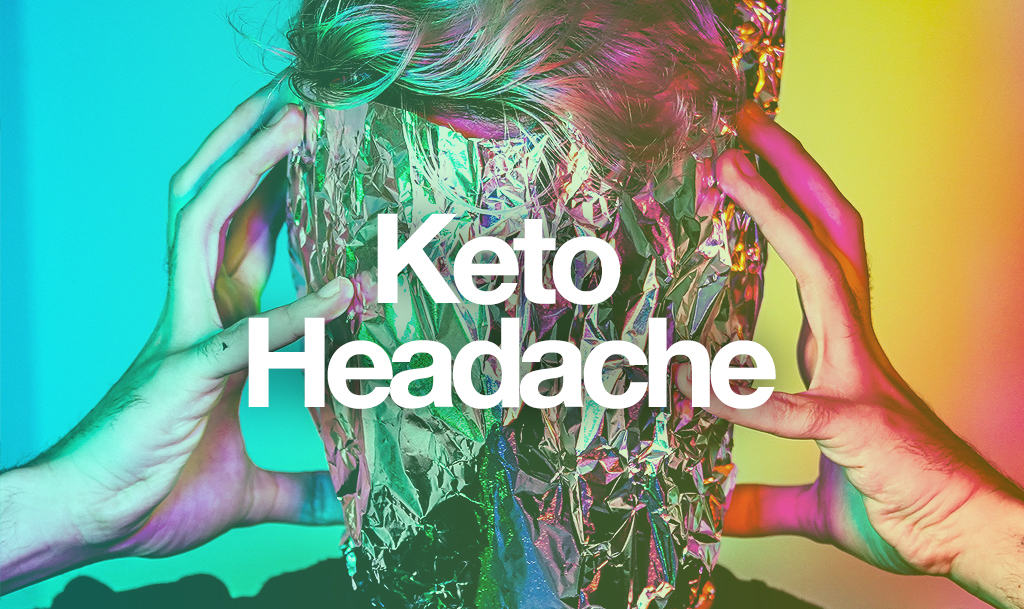
Here’s the thing:
Keto headaches are a common side effect of the ketogenic diet.
Headaches are nagging and dull,
especially when you try to find the strength to change your life and lose weight.
The truth is:
Headaches during the start of your journey is actually a good thing.

In this article, I will show you why, when it’s bad and how to stop it for good.
Transition to ketosis turns your body upside down
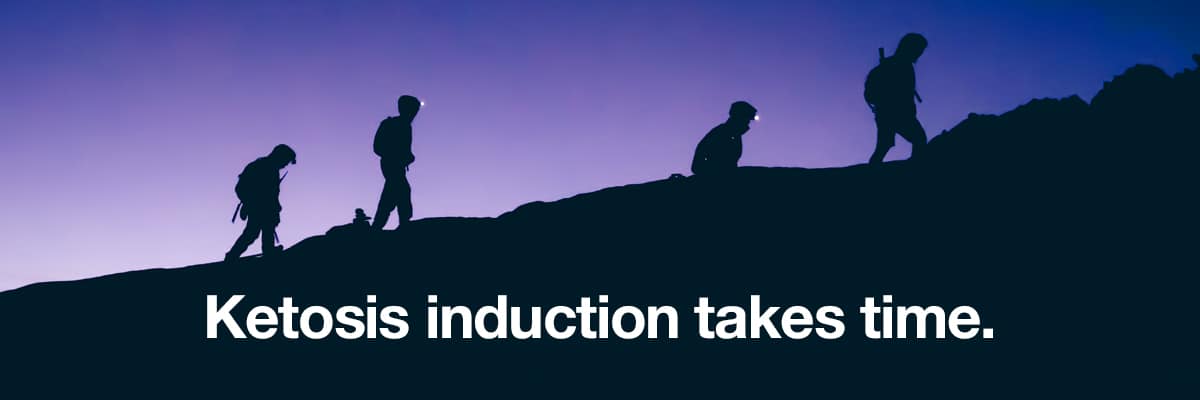
Different metabolic and physiological changes happen in the course of transition into ketosis, and that can throw your body temporary out of balance.
Ketosis doesn’t happen overnight. It takes time once your body adapts to fat and during that period everything will be changed to upside down.
A common side effect of this imbalance is a nagging headache, the hallmark symptoms of what is popularly termed the keto flu.
- The first change that happens is drops in blood glucose levels. Normally, your blood contains 70 to 130 mg/dL of glucose at all times. On the second day of carb restriction, however, blood glucose levels drop to below 70 mg/dL, which is defined as hypoglycemia. [1] Hypoglycemia can present symptoms of shakiness, brain fog, hunger, and, of course, headaches.
- Another thing you may notice during keto induction is that you are looking thinner. This is a result of water loss caused by drops in insulin and glycogen. Insulin is a peptide hormone that helps cells use glycogen, while glycogen is a simple sugar your body uses to make energy. Both help your body retain water. When their levels are low, you will become dehydrated.
As you can image, all these changes stress your body. In fact, your body produces more adrenaline and cortisol (stress hormones) in response to dwindling blood glucose levels.
It also begins to break down fatty acids and proteins to normalize blood glucose and create an alternative fuel for the brain (ketones).
But first, let’s talk more about the nature of keto headaches.
The headache coqtail
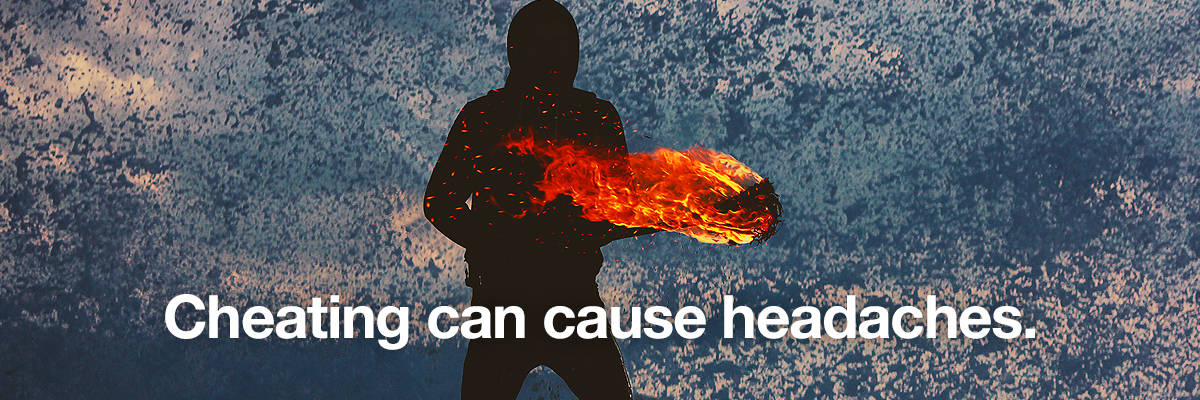
Everyone will experience the process of transferring to ketosis differently.
For some it will be a smooth ride to the sunset, for others it’s like the Rammstein concert every freakin day.
Changes that take place during keto induction often cause a range of symptoms (keto flu).
Sometimes all those symptoms come at once – this is what I call the headache coqtail.
- It’s a nagging and dull headache, chances are your brain is also fuzzy and your energy levels low.
- Mental fog is often described as trouble thinking or maintaining focus. Your thoughts may also slow down, and you may have trouble remembering things.
- Fatigue during keto induction can be both mental and physical as simple daily tasks like walking, talking, and listening become extremely difficult. And to top it off, your head hurts for hours on end.
While suffering all three symptoms is uncomfortable, it isn’t unusual or a sign of a serious illness. In fact, most people experience other symptoms in addition to keto headaches.
This is simply because keto induction affects your whole system.
Other common reasons for headache coqtail can include:
- You are not eating enough fat
- Your are eating too many carbs
- You are jumping in and out of ketosis
How long does this hell last?
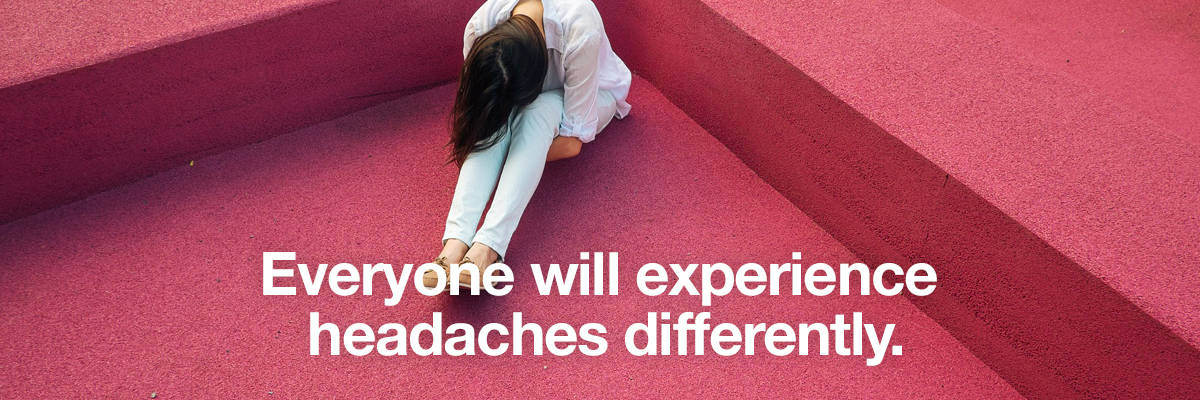
There’s no one answer to this question.
But in general,
a keto headache and its accompanying symptoms last two to five days in most cases.
This is the time it takes for the average body to start producing ketones and enter ketosis.
The reasons why I said it depends, is because it depends how strict you are with your diet and how far are you from entering ketosis.
If you don’t even remember what carbs smell like, eat loads of fats and keep your electrolytes replenished, you will be in ketosis in no time,
and you will experience fewer headaches.
But,
if you still cheat, eat carbs in tandem with fats and are jumping in and out of ketosis, then you will be experiencing headaches lot more.
And while it is to be expected that different people respond differently to carbohydrate reduction,
a headache that is taking too long to resolve is a sign that something is missing in your diet or that you have an underlying health problem.
Causes of keto headaches
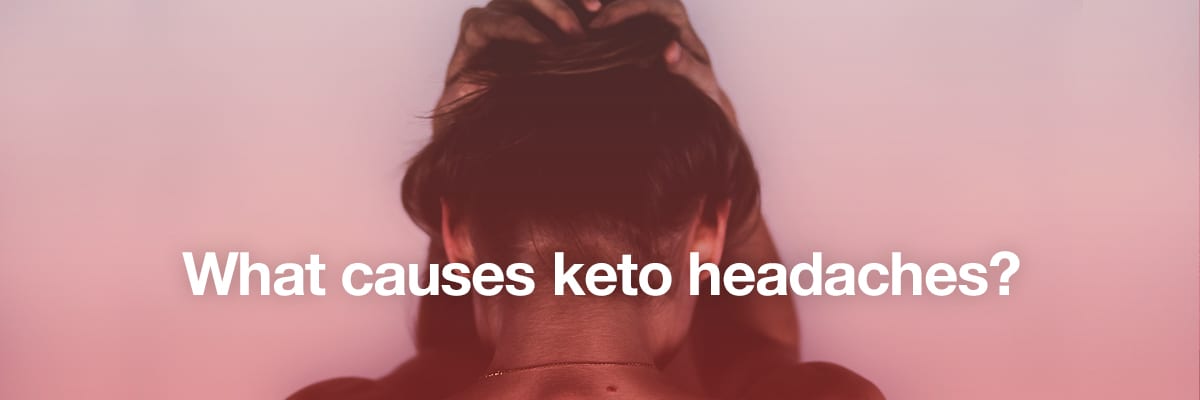
Keto headaches do not have a single cause.
As already said, how people respond to carb reduction differs from one person to the next.
While you may respond to carb reduction with carb withdrawal symptoms, another person may respond with dehydration.
With that said, here are the most commonly reported reasons why people develop headaches on a ketogenic diet.
Cause #1. Dehydration
Dehydration from fluid loss is extremely common during keto induction. Dehydration symptoms include thirst, infrequent urination, constipation, fatigue, dizziness, sunken eyes, and dry skin.
Headaches are another common dehydration symptom. The main reason dehydration causes headaches is brain shrinkage. [2] Your brain is around 75% water, meaning that water is critical to its health and functioning.
Dehydration headaches also feel similar to migraine headaches. They can affect any part of your head but tend to feel worse when moving your head.
The number one cause of dehydration during keto induction is sodium deficiency, but glycogen loss can also contribute to dehydration.
Cause #2. Sodium deficiency
Sodium deficiency (hyponatremia) is a type of electrolyte imbalance. Electrolytes are chemicals that conduct electrical signals between cells.
They also help regulate your body’s fluid balance. Besides sodium, other important electrolytes include calcium, magnesium, chloride, and potassium. However, during keto induction, you are most likely to lose sodium according to some studies. [3]
There are other explanations for why certain electrolyte imbalance can cause headaches.
Some theories suggest that a lack of certain electrolyte may overstimulate pain sensors in brain membranes. [4] This is especially the case with migraine headaches.
Cause #3. Sugar withdrawal
Animal studies show that sugar (glucose) has drug-like effects. [5][6] Human studies have also noted that sugar affects the brain’s reward system.[7]
So, cutting back on this addictive substance leads to withdrawal symptoms like cravings, agitation, and headaches.
How severe your withdrawal symptoms will be depends on how “addicted” you are to this macronutrient.
If you noticed that tend to overeat on carbohydrate-rich food when stressed, chances are you have developed a sugar addiction.
Cause #4. Hypoglycemia
Hypoglycemia is short-lived in people who follow a ketogenic diet. Still, it can seem scary when you notice cognitive changes during acute episodes.
Studies show that acute hypoglycemia impairs your ability to organize thoughts, prioritize tasks, and manage time. [8]
This is known as mental fog and is a common side effect of hypoglycemia.
Besides mental fog, hypoglycemia causes keto headaches. A probable explanation for this is that it elevates stress hormones, notably adrenaline and noradrenaline.
These hormones can cause the brain’s blood vessels to constrict. This means less oxygenated blood reaches the brain, leading to pain.
Cause #5. Caffeine withdrawal
If you habitually consumed energy drinks, coke, and other caffeinated beverages before starting the keto diet, then your headache may be due to caffeine withdrawal.
Caffeine is a stimulant and a highly addictive substance. Multiple studies show that caffeine withdrawal symptoms tend to be severe, common, and often include headaches. [9]
Caffeine withdrawal headaches are often compared to and confused with migraine headaches. To differentiate the two, keep in mind that caffeine withdrawal headaches tend to be symmetrical, while migraine headaches usually affect one side of the head at a time.
The reason caffeine withdrawal causes headaches, according to some studies, is that it sharply increases blood flow to the brain and produces changes in your brain’s electrical activity. [10]
Cause #6. Not eating enough calories
A common problem for keto beginners is not eating enough calories. This is especially the case after you’ve entered ketosis and even became keto-adapted. Studies show that being in ketosis reduces a person’s appetite. [11]
This effect comes directly from the ketones themselves for which studies show they seem to reduce the production of hunger hormones. [12] Stable blood glucose on a ketogenic diet could also explain why your appetite lowers on this diet.
And while eating less is a great way to lose excess weight, going overboard with calorie reduction can leave you feeling ill. Eating too little can lead to long-lasting hypoglycemia.
On keto, your body makes glucose from triglycerides (glycerol) and certain proteins. You need to eat at least 25kcal per kilogram of body weight to maintain normal health and functioning.
Four ways to stop keto headaches
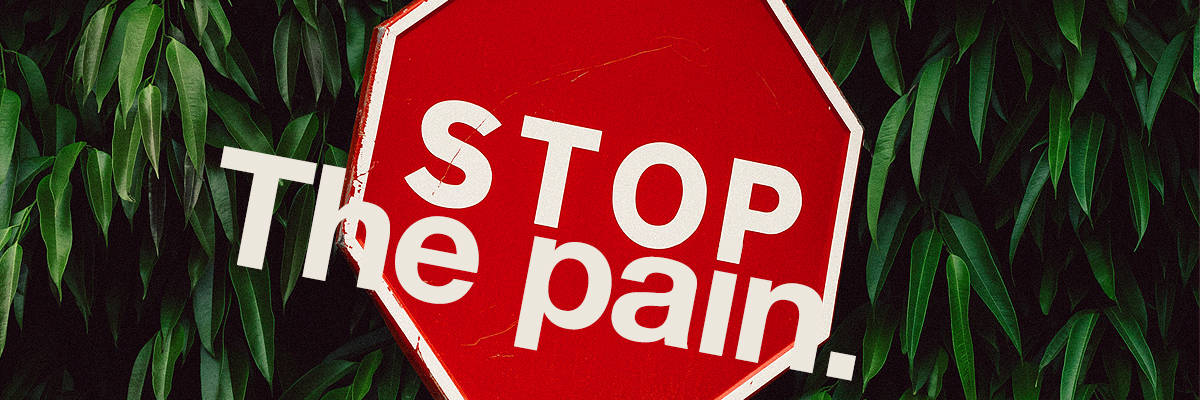
Because you are reading this, you’re probably already afflicted with a keto headache, so prevention is obviously too late.
But that doesn’t mean that there’s nothing you can do about it.
Follow these simple steps to find immediate relief.
#1. Immediate headache cure
Drink a glass of warm water mixed with half a teaspoon of table salt. This should help resolve your keto headache within 30 minutes as sodium helps retain water.
If you noticed immediate relief, continue this remedy for the next couple of days or until your blood ketone levels reach 0.5 – 5 mmol/dl or a urine test strip reads positive.
Some experts recommend taking 3,000-5,000mg of sodium daily through the remainder of your diet. [13]
You can get this amount from 1 ½ to 2 tablespoons of salt since salt is mostly sodium (and chloride).
If you find the taste of salted water unbearable, then add a bouillon cube to your glass of salted water. Keep in mind that one cube contains around 40mg of sodium.
Make sure to spread this amount throughout your day, adding one teaspoon at a time and balancing your intake with enough water (3-5L/day).
#2. Replenish electrolytes
It’s important to balance out your sodium intake with another electrolyte, namely potassium.
Sodium and potassium work in synergy in what is called the sodium-potassium pump, which helps nerve cells communicate.
Sodium-potassium balance is also critical for maintaining hydration. You can get potassium from supplements or potassium-rich food like avocados, broccoli, and salmon.
Other electrolytes that you may lose on a ketogenic diet are magnesium and calcium. However, this can happen only if you do not plan your diet carefully.
Magnesium is a mineral found mostly in fibrous vegetables, nuts, and seeds.
Calcium loss can accompany magnesium deficiency in some cases. [14][15]
Addressing the former tends to correct the latter in healthy people.
The easiest way to get the vital electrolytes during your keto journey is to take a proper electrolyte supplement.
#3. Eat more fats
On a 2,000-calorie keto diet, fat intake should be between 150 and 180g a day, depending on your age, sex, activity levels, and diet goals.
And while that may seem like a lot, it is essential for the maintenance of normal resting metabolic rate (RMR) –
the rate at which your body burns calories at rest. The higher your RMR, the better your body is able to maintain its metabolic functions, like ketone and insulin production, for example.
To ensure you are eating enough fat, you may want to make a daily or weekly meal plan that also includes nutrition facts. Diet apps can help you keep track of your macronutrient intake as well.
To boost your fat intake, base your meals around high-fat food like bacon, fatty cuts of meat, avocados, butter, fatty fish, and nuts and seeds.
#4. Exogenous ketones
We cannot get by without exogenous ketones.
It’s no secret, that exogenous ketones are helpful supplements when it comes to mitigating keto flu symptoms such as headaches.
In case you are not familiar with these supplements, exogenous ketones are laboratory-made ketones that studies show increase blood ketone levels, inducing temporary ketosis.[14]
They help increase energy levels and are anti-inflammatory, which also helps ease headaches. Many keto dieters report that these supplements helped them fight the keto flu.
Most commercially available exogenous ketones are sold as ketone salts, meaning they are bound to sodium, calcium, or magnesium.
This is also valuable in reducing keto headaches as it adds electrolytes to your diet.
When choosing an exogenous ketone product, prefer powdered version, as it’s easier to transport and don’t make your beverages oily.
#5. Drink buttered coffee
If caffeine withdrawal is behind your headaches, then drinking coffee will help resolve your headache within minutes. Infusing your coffee with butter helps even more.
This is known as buttered coffee, bulletproof, and keto coffee.
It is a popular drink believed to help increase energy levels and fight the keto flu.
While there are no studies examining its benefits, the combination of caffeine and saturated fats in this coffee is certain to relieve your headache while promoting ketosis.
To make buttered coffee, pour a hot cup of coffee in a blender, add butter, and blitz until you get a golden concoction.
If you decide to take pain medication such as aspirin or ibuprofen, you’ll be happy to learn that caffeine increases their effects. [15]
Don’t get discouraged by it
Keto headache and other keto flu symptoms are fairly common but completely avoidable. Many keto beginners don’t take the necessary steps to prevent the keto flu.
Increasing sodium intake to levels you normally don’t consume is one such step. Drinking more fluids is another step as is increasing your fat intake.
If you have been affected by unrelenting headache for more than a week, do drink sodium-enriched water and see if that helps as a first-line treatment.
Make sure to measure your ketone levels and check for signs of hypoglycemia, especially if you have diabetes.
Know that many keto dieters have been through such uncomfortable symptoms and that they are almost always temporary.
The takeaway
Keto headaches are the most common symptom of keto induction.
This symptom is almost always a result of hypoglycemia combined with electrolyte imbalances.
Luckily, hypoglycemia resolves within a day or two of starting keto, while electrolyte imbalances are easy to correct with simple supplementing.
And if all else fails, taking an aspirin can help you get through the worst of keto headaches while you wait to become keto-adapted and start enjoying keto diet benefits.

Alex is the founder of Bodyketosis, an author, low-carb enthusiast, and a recovering chubby guy who reclaimed his health using the ketogenic lifestyle. The need for the keto life began after his aunt and cousin were diagnosed with type 2 diabetes and he was next in line. Through personal experience and extensive scientific research, Alex offers insightful tips for everything keto.


![In-Depth Beginners Guide to Ketosis 2024 [Yes, it’s SAFE]](https://bodyketosis.com/wp-content/uploads/2019/06/ketosis-101-768x457.jpg)
![The Keto Whoosh Effect Explained [Losing Weight or Fat?]](https://bodyketosis.com/wp-content/uploads/2019/05/what-is-keto-whoosh-effect-768x457.jpg)
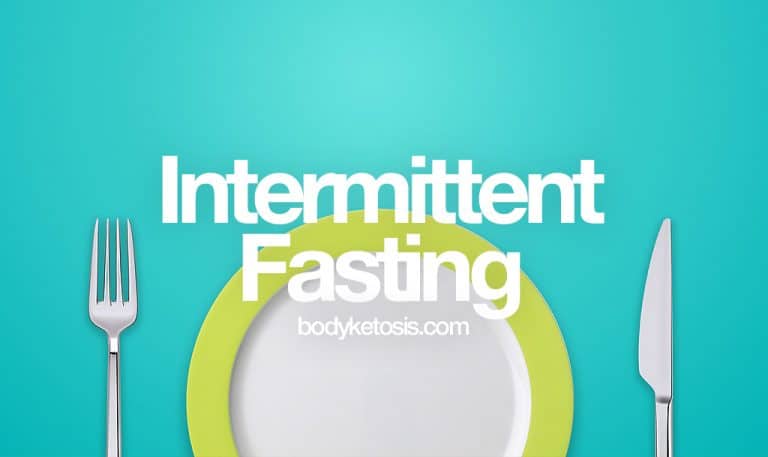
![Detailed Beginners Guide to Keto Diet [Meal Plan Included]](https://bodyketosis.com/wp-content/uploads/2019/04/what-is-keto-diet-768x457.jpg)
